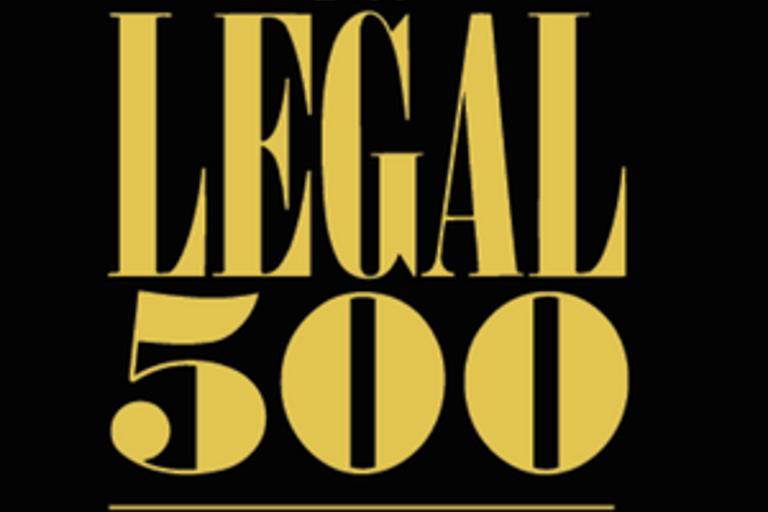
Which obligations are incumbent upon Facebook to prevent counterfeit advertisements on its platform?
19 April 2021
Recently, the court of The Hague has published its verdict in the ongoing matter between Tommy Hilfiger (PVH) and Facebook on the many advertisements for fake Tommy Hilfiger clothing regularly posted on both Facebook and Instagram. This recent verdict concerns the precise scope of the obligation to filter (infringing) advertisements prior to their placement and the obligation of Facebook to provide PVH with the personal data of its relevant advertisers.
PVH and Facebook
PVH Europe is a large fashion company and exploits several well-known brands, such as Tommy Hilfiger and Calvin Klein. Through various licensing structures Tommy Hilfiger Europe markets clothing articles of the Tommy Hilfiger brand within the European Union. To this end, it also uses the advertising options of Facebook’s platforms.
Facebook operates a global social media platform and offers its users the possibility of placing various types of advertisements on both Facebook and Instagram for a fee. For example, a Facebook user may place an advertisement for products he wishes to sell, both professional and personal. To support its user in that regard, Facebook offers a service in which it automatically (re)targets the relevant public, and automatically promotes the most relevant items of the advertiser anywhere on its platform.
On a regular basis, the advertisements show and promote counterfeit products. These advertisements often lead to websites offering counterfeit Tommy Hilfiger products and scamming consumers in the end, i.e. by committing credit card fraud. Facebook therefore conducts a preventive screening of the advertisements prior to their placement on its platforms to detect listings which might contain infringing products. Unfortunately, this screening is not sufficiently dissuasive, thereby causing several advertisements for counterfeit Tommy Hilfiger clothing to slip through the net.
Two preliminary relief proceedings
Although Facebook claimed it always acted expeditiously to remove the respective advertisements as soon as PVH made Facebook aware of it, Facebook – according to PVH – took insufficient measures to actually prevent the infringements as such.
In that context, PVH brought preliminary relief proceedings before the court of Amsterdam at the end of 2018, in which Facebook was ordered by the preliminary relief judge to take more adequate measures to actually prevent the offer for sale of counterfeit products via its online platforms. Even though Facebook was regarded as an intermediary whose conduct did not infringe the relevant trademark rights of PVH itself, it was decided that Facebook could be held liable for taking insufficient measures to prevent any future infringements of a trademark by reason of a wrongful act. Facebook was ordered to implement policies and put in place several controls to detect specific listings meeting certain characteristics (such as a too low price, high discounts, poor English in the description, etc.) and to subsequently remove such advertisements from its platform, as these advertisements were likely to promote counterfeit products or were allegedly placed by “bad actors” promoting their fraudulent websites. Facebook was also ordered to provide personal or other identifying information from the respective advertising accounts. Whereas Facebook initially argued that on the basis of the Directive on electronic commerce it must be exempt from liability for information (and thus advertisements) stored and placed on its platform by its users, the judge disallowed this defence. The appeal lodged against this verdict is still pending.
Pending this appeal, PVH has enforced the judgment at hand and thereby ordered Facebook to implement the respective policies and to provide PVH with all relevant data relating to the (infringing) advertisements as reported by PVH. This conduct ultimately led to an enforcement dispute before the court of Amsterdam. The judge eventually took the view that Facebook had failed to timely submit to PVH i.a. the city information of four advertisers and has therefore forfeited a penalty of € 730,000.
Most recent judgment
Following the preliminary relief proceedings in 2018, PVH had initiated substantive proceedings before the court of The Hague, arguing the case all over again. Where PVH again argued that Facebook had infringed PVH’s copyrights and trademarks by communicating copyright protected works to the public, the judge in these main proceedings also took the view that Facebook must be considered to be an intermediary in this context and therefore did not carry out an act of communication itself by merely allowing and enabling the public to access the protected works. According to the judge, Facebook thus does not infringe the copyrights of PVH. The same goes for the alleged infringement of PVH’s trademark rights: Facebook is to be considered an advertising platform and service giving its users the means to make use of trademarks without the authorisation of their proprietors. That use is thus made by the user of the advertising platform, whereas Facebook simply allows its users to use such signs on its platform.
In addition hereto, and contrary to the view of the preliminary relief judge, the court of The Hague held that Facebook was in fact able to benefit from the exemption laid down in Article 14(1) of the Directive on electronic commerce in respect of all liability that may result from the information as stored on its platform at the request of its users as Facebook had not played an active role in relation to the advertisements at issue, despite i.a. its active efforts to micro target the relevant public on behalf of the advertiser. Facebook could thus not be held liable for the infringing content as stored on its platform . In the end, however, the court held that the circumstances of the case could not reasonably prevent Facebook from providing certain personal data of its users to PVH if and when reporting infringing content. As PVH has sufficiently demonstrated this data will be necessary to pursue a legitimate interest (e.g. to put a stop to the infringement itself), the court considered the transfer of data to be lawful under the GDPR.
Whereas the court stated that Facebook had already taken several measures to prevent misuse of its platform (which are 99 % effective), Facebook is now ordered to take additional measures to both end and prevent infringements committed on its platform, as this possibility of requiring the termination or prevention of any infringement is not in any way affected by the limitation of the liability of Facebook as established in the Directive of electronic ecommerce. However, as the obligation to filter information stored at the request of the advertiser as ordered in the preliminary relief proceedings (whereby the filter must be based on i.e. the pricing, high discounts, or poor English in the description) could not be carried out by automated tools and technologies, Facebook would be obliged to actively seek for infringing content manually. As Facebook has more than 7 million active advertisers, any obligation of such nature to undertake filtering in order to seek any infringement would not be appropriate, practicable or proportionate in any way, and would not strike a fair balance between the protection of the intellectual property right enjoyed by PVH and the freedom to conduct a business enjoyed by service providers such as Facebook. In addition, there will be more trade mark proprietors obliging Facebook to adopt the same measures for protecting their respective trade mark rights. The court has therefore ordered Facebook to undertake filtering of the advertisements on its platform by means of an automatic filtering tool.
In the end, Facebook is i.a. ordered by the court to cease and desist from providing services as an intermediary for the infringement of PVH’s copyrights and trademark rights in the Netherlands and the Benelux by advertisements or promotional accounts identical to the examples as specified in the course of the proceedings. In addition thereto, Facebook is ordered to provide PVH with a list of specific data relating to the advertisements or promotional accounts at stake, and to ultimately terminate the advertising agreements with the advertisers and users who have placed such infringing advertisements and/or created such infringing promotional accounts. An important caveat of these orders is that Facebook may indicate, within two weeks after receipt of a written notification of PVH, that it does not consider itself obliged to provide the information at stake or that the persons involved has (legitimately) objected thereto. Moreover, Facebook shall forfeit a penalty in the amount of € 5,000 for each day that it does not comply with the orders of the court, until the maximum amount of € 2,000,000 has been reached.
In conclusion
According to the court of The Hague, Facebook may rely on the exemption from liability provided for intermediary providers, as Facebook is held not to play an active role in relation to the content and advertisements stored and placed by its users. This means that Facebook shall also not be required to pay damages to PVH. The fact that Facebook generates considerable advertising revenues from its advertising platform (and thus from the respective infringing advertisements), does not in itself detract from this.
This exemption from liability however does not relieve Facebook of its obligations to prevent and remove infringing content from its platform. In that context, Facebook is obliged to enable the respective proprietor to take appropriate action against the infringing party itself, i.e. by providing personal data of the latter. In addition, Facebook must strengthen its screening efforts prior to the placing of the advertisements. In that context and notwithstanding the exemption of liability of Facebook, the court of The Hague has based its injunction on the stipulation of Article 6:196c(5) of the Dutch Civil Code and Article 14(3) of the Directive on electronic commerce, on the basis of which it was entitled to require Facebook to terminate or prevent an infringement by imposing a screening obligation, to ultimately draw the right balance with the legitimate interests of the PVH regardless.

HOW THE DSA SHAPES RECOMMENDER SYSTEMS

Post Now, Pay Later: Sued for Posting a Photo of Yourself

LXA ATTORNEYS ACCOMPANIES RECORD NUMBER OF TRANSACTIONS IN 2024

LXA Attorney Gie van den Broek has contributed to the October 2024 ECTA Bulletin report

LXA Attorneys Joins Unifab’s College of Experts

Post-Brexit exhaustion of trademark rights: what you need to know!

LXA wins lawsuit against counterfeiters for Coty

Team franchise Exclusive Contributor 2023 Legal 500

Amsterdam Criminal Court Rules Against Counterfeiters Accused of Habitual Money Laundering (1)

